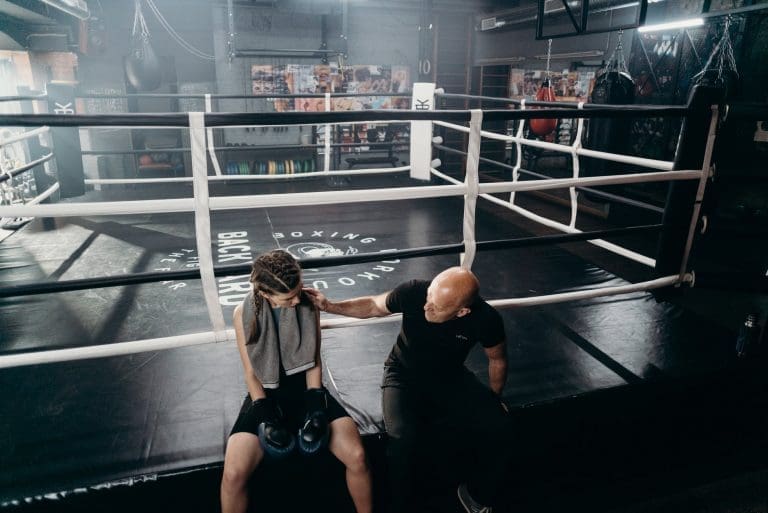
Sports Psychology Tips: Mental Health Guidance For Coaches When Supporting Athletes
Without Positive Mental Health Athletes Performances Will Dip
Coaches often state their number one priority is the athletes they work with. They are the people you sacrifice many hours of work for, putting on extra sessions and providing support whenever needed. You are used to growing and developing athletes’ physical skills and striving to achieve their peak performance. However, now more than ever it is important to also consider the mental health of the athletes you work with and how you can help promote positive mental health and well-being.
Common anxieties faced by athletes
For athletes, it can seem very overwhelming at times, especially since the majority of sports are still restricted at the moment. They may find themselves struggling to manage with the demands of online coaching or how they can manage their time effectively with a lack of a normal routine. With such a large time gap between face-to-face coaching and the resumption of competitive matches, they may be worried for the team’s return to competition and whether they are doing enough to prepare. Furthermore, stressors outside of the work environment can add to feeling overwhelmed. For example, managing family time, their fitness levels or staying connected to friends. Influences such as these, any many more, can be detrimental to the mental health of your athlete.
Athlete emotions are also extremely important to the contribution of the mental health of the athlete. Feelings of loneliness, lack of motivation, worries on their future performance when they return, lack of purpose or anxieties surrounding isolation are all common feelings for athletes currently. Without positive mental health and well-being, it can become very difficult to focus on anything else. For athletes to perform at their best athletically and physically they must have the correct mindset, a positive mental health and well-being. Without this, athletes can struggle to reach their full potential.
Why a coach is so important for maintaining positive mental health
As a coach, you are in the perfect position to support a positive mental health approach. You are seen as the leader, someone to rely on and support the athlete when they need it. This greatly increases the likelihood of athletes asking you for help or following your instruction, should you suggest some activities to improve their mental health. Thus, below are 3 tips you can give to athletes or do within your team to help:
1.Ask your athletes how they are doing
- Stay in regular contact with your athletes. Doing this will help you to understand where your athletes are at personally, if any are struggling or if they are managing well. In doing this, you are beginning to normalise the conversation surrounding mental health, which can help the athletes to open up and feel supported and safe in telling you how they are feeling. From this, you can recognise whether an athlete is struggling and that they may need some extra help.
2. Keep your athletes connected
- Set up regular communication between athletes. For example, why not start a fitness challenge for them to achieve. This can be facilitated by ensuring there is a group chat/messaging system for them to stay connected and up to date on the challenge. The athletes can send updates to each other, support each other’s progress and maintain social contact. For example, start a ‘Running to Rome’ challenge! Set your team the challenge of trying to run collectively and calculate each players’ distance. Together, see how far they can reach each week, adding up to a big target, like the distance to Rome!
3. Give athletes a routine
- In the absence of regular training sessions, athletes may be struggling to maintain their regular fitness and motivation levels. Encourage athletes to train on the same day, set out specific workouts to be done or rest sessions to be completed after a hard training day. Set them these small tasks to complete each week can help them maintain a structure and feel more positive towards training.
Remember to be supportive and ask questions. Mental health can always be improved. By supporting the players’ well-being, you are promoting their ability to perform well physically. In turn, you may find your athletes’ motivation and attitude to training may improve. But most importantly, don’t forget you are not the expert and it isn’t your job to fix anyone. You only need to be supportive and willing to listen, from there you can help athletes get in touch with professionals should they need it.
If you found this article helpful, please share it with your friends, team-mates, parents or coaches.

Best Wishes
Olivia Scott
Mental Skills Performance Coach and Sports Counsellor located near Newcastle Upon Tyne, UK. With a passion for helping hockey players and other athletes achieve their ambitions.
Supporting Highly-Driven Athletes: A Coach’s Guide
Supporting Highly-Driven Young Adult Athletes A Guide For Sport Coaches Highly driven athletes aged 17 and above are often seen as the “easy” ones to coach. They’re committed, organised, and willing to do whatever it takes to improve. But at this stage of their development, the pressures are higher. Selection, progression, scholarships, contracts, or career
Helping Young Athletes When Goals Feel Like Pressure
Conversations with Kids: Conversations with Kids: When Goals Feel Like Pressure For parents and guardians where we give you prompts so that you can have more meaningful conversations with your children to help them build key characteristics such as mental toughness, resilience, confidence, creativity, focus and so on. A Questions for Your Kids When someone
Emotional Control for Coaches: Replace Outcome Talk with Process Cues
Emotional Control & “Fear Phrases” in Youth Sport A Guide For Sport Coaches How to keep standards high without creating a fear-based culture Youth sport coaches don’t just coach skills you coach “psychological states”. Your tone, language and body language shape how children and young athletes interpret pressure. When emotions run high, many coaches slip
Why Some Kids Believe They Can and Others Don’t
Conversations with Kids: Why Some Kids Believe They Can and Others Don’t For parents and guardians where we give you prompts so that you can have more meaningful conversations with your children to help them build key characteristics such as mental toughness, resilience, confidence, creativity, focus and so on. A Questions for Your Kids When
Why Mentally Tough Kids Make Better Decisions Under Pressure
Why 12–16 Is A Very Important Age for Mental Toughness Lessons From Doug Strycharczyk If you coach children aged 12–16, you’ll know something important: their skills are improving fast, but their minds can be over the place. One week they look confident, brave and creative. The next week they freeze, hide or panic under pressure.

